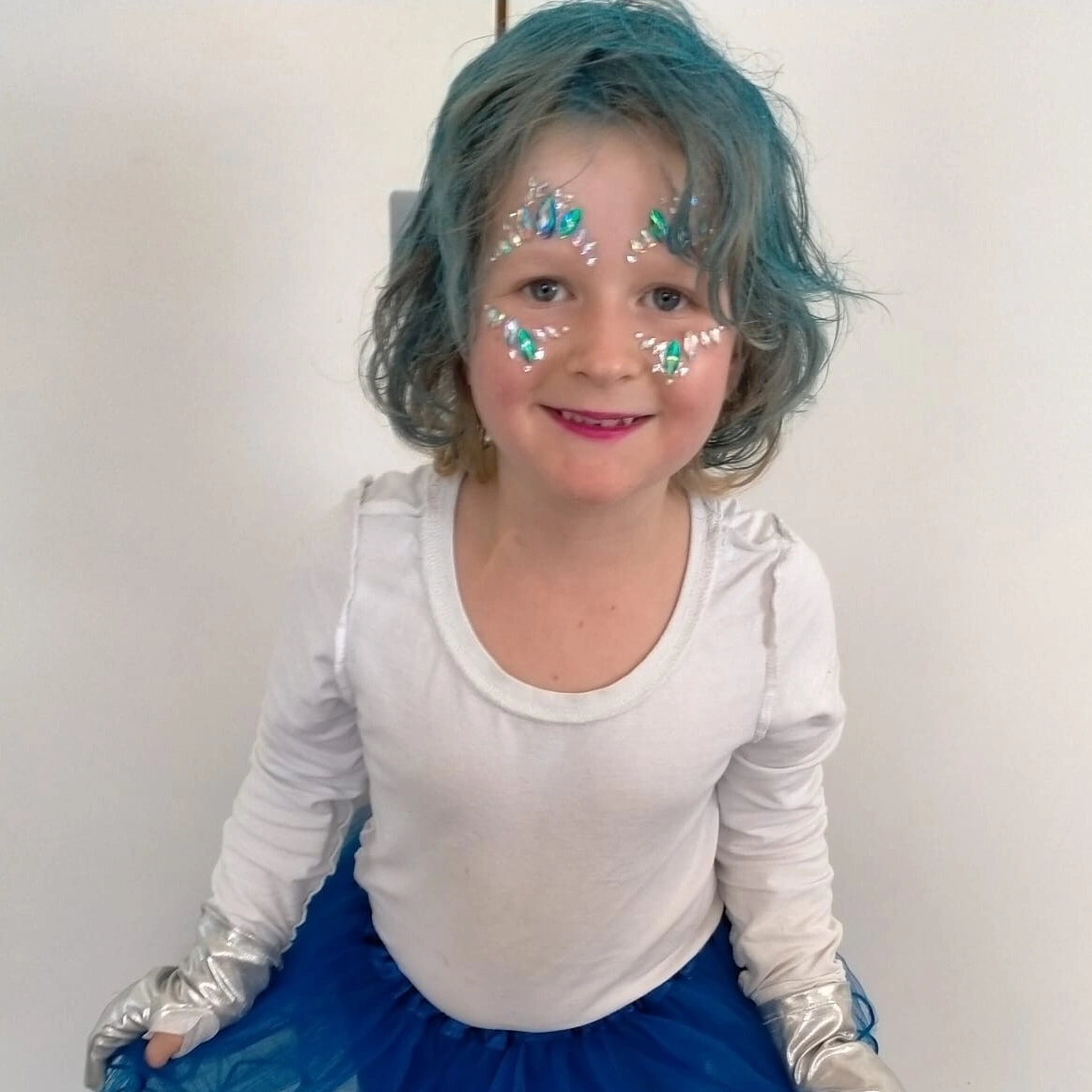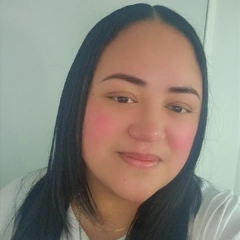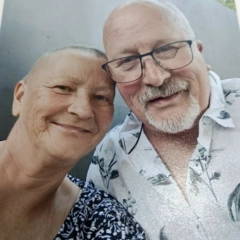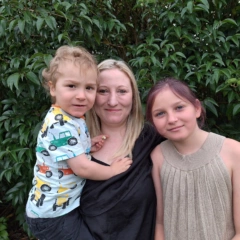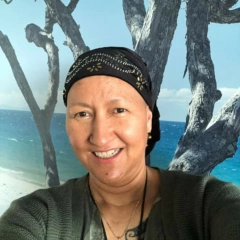Take a deep breath, place one foot in front of the other, and just go.
Start running and don’t look back. That is what 7-year-old Ayla did, when she participated in her school’s cross-country race last year, completing two full laps with a port needle attached to her. Not what your average 7-year-old would do, but Ayla has acute lymphoblastic leukaemia (ALL).
And, the week of the big cross-country race coincided with an appointment to go to the hospital. Her Mum Yvonne, says: “Ayla was so disappointed, but she just said, ‘Nah, I’m going to do it anyway.’ And she did. She ran slowly and carefully, and she finished the whole thing. It was amazing.”
‘Amazing’ is an understatement. Ayla’s tenacity runs in the family – mum Yvonne, her partner Nathan, and Ayla’s sibling Mikah – they’ve been through hell and back over the last 2 years, and never given up hope once. But, it wasn’t always like this. Yvonne recalls the early days of Ayla’s diagnosis, and an adverse reaction that she had to chemotherapy. Ayla was stuck in a hospital bed for two months.
Ayla could barely walk, let alone run a marathon. She almost died.
“It’s hard to look back on that day. It’s almost like a story that I tell myself.”
The day Yvonne is talking about is the 3rd May, 2021. It was a Monday and meant to be Ayla’s first day back at school, after the holidays. Throughout the break, Ayla had been complaining about what seemed like a mild cold – but on that Monday, it seemed a lot more serious. Ayla was exhausted, feverish, and had a persistent cough.
Ayla also had a bruise that was taking longer than usual to heal. Yvonne and Nathan weren’t overly concerned, but they decided to take her to their family doctor just in case. “The doctor’s questions made me remember some other strange, unexplained bruises that had since disappeared.”
Some of other major red flags that the doctor noticed were enlarged lymph nodes and a massively enlarged liver. Alarmed, the doctor called their local hospital and then took blood samples from Ayla to be sent off urgently for analysis.
It was on a bike ride later that day, that Yvonne received a call from the GP. “She said that Ayla’s white blood cells were low, and I just… I just…” Yvonne stammers, trying to get the words out. It’s clear that she’s replayed this memory in her head a thousand times.
“I just knew. I said to her – ‘It’s cancer, isn’t it?’ And, she said, ‘Well, we don’t know, and I can’t confirm that, but it sounds likely based on her symptoms and her blood results.’”
After Yvonne rushed Ayla to the hospital, ‘likely’ turned to ‘definitely’ in less than 24 hours. “But, we still had to get Mikah from childcare…and pick up our online groceries too…so I said to my sister, ‘Can you do that – oh, by the way, Ayla might have cancer – and could you tell our Mum?’ Because I just couldn’t face telling her. It was chaos.”
Yvonne didn’t realise it at the time, but she was in the middle of a panic attack. It was fortunate that Nathan was calm enough to leave and pick up Mikah. This is when doctors arrived in the room.
“They wanted to tell me about Ayla’s diagnosis right then and there, and I just said, ‘No. I can’t do this without Nathan.’, So I sent a whole team of doctors away. And when they came back, when Nathan was here and I was ready, they seemed as frightened as I was, actually.”
Yvonne laughs, in a ‘what-on-earth-was-happening’ kind of way, recalling the sad, confusing, absurdity of it all. It didn’t make any sense.
“It’s impossible to overestimate the level of support we have received from LBC. And it’s also impossible to overestimate the level of need for families in our situation as well.”
The level of need for families is something that Matt from LBC was well aware of. That’s why he showed up at Christchurch hospital when Yvonne and Nathan needed him. “Matt gave us heaps of information books and resources, so that we could learn more about the terms, and what normal blood counts were, that kind of stuff. And he introduced us to Super Kids’ Club, which Ayla absolutely loves.”
LBC’s Super Kids’ Club is a supportive space for children with blood cancer to meet other kids in similar situations. It’s an opportunity to gain some understanding of what they’re going through by talking to a Specialised Play Therapist. It involves all kinds of fun and creative activities.
“Ayla opened up much more than usual. She asked the other kids whether they also had hair loss, and whether they had nasogastric tubes too…things that took her a long time to come to terms with for herself.” Ayla had instantly clicked, and found her people. But, this wasn’t unusual for brave, thoughtful and empathetic young Ayla, the girl who once put her whole heart into learning NZSL to communicate with a hearing-impaired classmate back in school.
“She recently met a little boy who has severe behavioural issues, and she is so loving and open to him, and he is to her as well. It’s certainly in her to have empathy with other people who are having challenging times in life. She accepts people for who they are, no matter what. It’s something I am super proud of her about.”
And, Yvonne is incredibly proud of Ayla’s young sibling Mikah, who has come a long way, also thanks to LBC’s Kids’ Club. “That therapy side of things is really important for Mikah, who has a bit more trauma around the whole experience, in a lot of ways, than Ayla does.”
“When I see what Ayla is doing and the love between her and Mikah as well, I just feel so grateful that we’ve got to this point.”
Ayla is doing a lot better now. But, Yvonne is still wary. She knows that there is a chance that Ayla’s condition can worsen. “Right now, my fight or flight response kicks in pretty quickly when I’m stressed. So, I just want to be gentle with myself now.”
This is where Ayla leads by example, and she encourages the rest of her family; to go and run that cross-country race, to go for that bike ride, and to plan that holiday for six months from now; even if you have a needle stuck inside you.
This is where you can step up and join us in changing the lives of children just like Ayla all over Aotearoa. Please consider making an urgent donation to LBC today.
